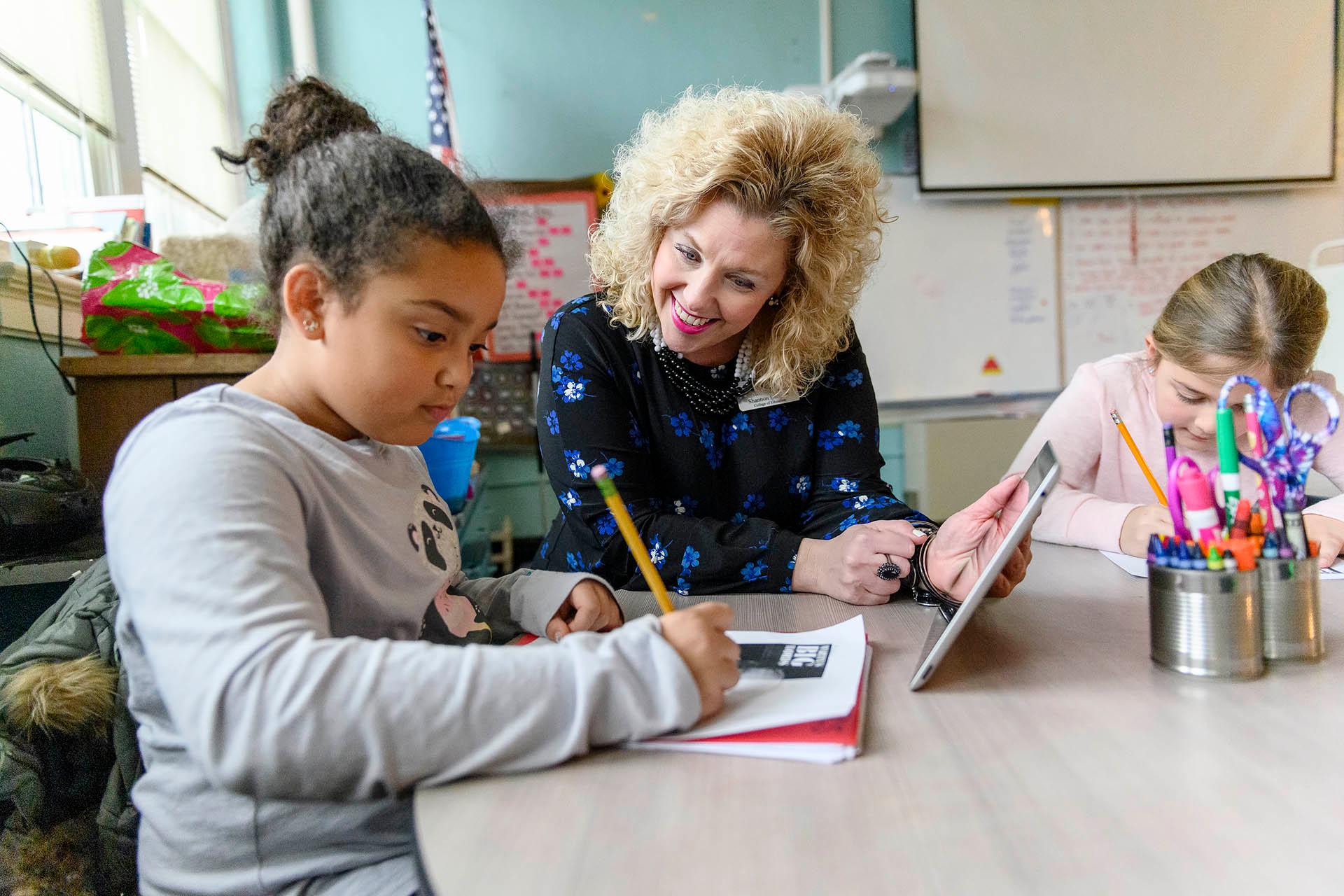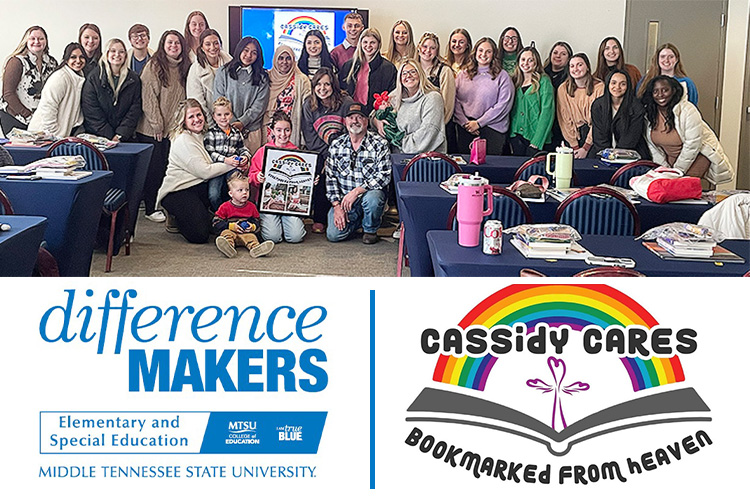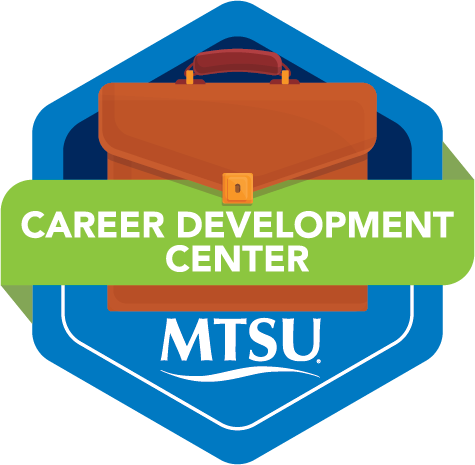
Elementary Education
Share your love of learning with the next generation. Help your students build a strong educational foundation.
Elementary Education, B.S.
The Bachelor of Science in Elementary Education is offered through the College of Education at MTSU. The Elementary Education program (grades K-5) is designed to prepare teachers for elementary schools. It requires General Education, major, professional education, and enhanced student teaching courses.
The Elementary Education program specializes in preparing future educators for teaching learners in kindergarten through 5th grade. Throughout this initial licensure teacher preparation program, students are trained in content knowledge, instructional and assessment strategies, classroom management, and other relevant topics and practices. Students are provided opportunities throughout their programs to engage in experiential learning in elementary classrooms. Students enrolled in the K-5 program will discover the joy of teaching elementary students through a curriculum designed to engage them in the learning process.
News Briefs

Young inventors display innovation, ‘effort’ during Invention Convention at MTSU
Excitement was abundant in Middle Tennessee State University’s Student Union Ballroom recently as eager elementary schoolers from around the region pitched products to judges that darted from presentation to presentation.[ Read More ]

Family of late MTSU alumna donates books biannually to College of Education grads
A group of fall 2024 graduates from Middle Tennessee State University’s College of Education were given nearly two dozen books for their first classrooms to honor the memory of a late alumna.[ Read More ]
News Briefs

Young inventors display innovation, ‘effort’ during Invention Convention at MTSU
Excitement was abundant in Middle Tennessee State University’s Student Union Ballroom recently as eager elementary schoolers from around the region pitched products to judges that darted from presentation to presentation.[ Read More ]

Family of late MTSU alumna donates books biannually to College of Education grads
A group of fall 2024 graduates from Middle Tennessee State University’s College of Education were given nearly two dozen books for their first classrooms to honor the memory of a late alumna.[ Read More ]
Related Media

Elementary Education, B.S.
Individuals trained to teach bring a desirable range of expertise and creativity to planning and administrative roles. Graduates completing their teacher preparation at MTSU are found in public and private school classrooms throughout Tennessee and in many other states. In addition to classroom teaching, other career options include
- Agency and administrative work
- Community and foundation work
- Consulting, professional development, and teacher training
- Education policy development
- Education marketing and research
- Private tutoring
Among the employers of MTSU elementary education alumni alumni are
- Anderson County Schools
- Bedford County Schools
- Cannon County Schools
- Carroll County Schools
- Cheatham Co Schools
- Coffee County Schools
- Collierville Christian Academy
- Crockett County Schools
- Cumberland County Schools
- DeKalb County Schools
- Dickson County Schools
- Dyer County Schools
- Fayette County Schools
- Fayetteville City Schools
- Franklin Special School District
- Giles County Schools
- Grundy County Schools
- Hamilton County Schools
- Hardeman County Schools
- Hickman County Schools
- Kids Connection
- Knox County Schools
- Lawrence County Schools
- Lebanon Special School District
- Lewis County Schools
- Lincoln County Schools
- Macon County Schools
- Madison County Schools
- Manchester City Schools
- Marion County Schools
- Marshall County Schools
- Maury County Schools
- McNairy County Schools
- Memphis and Shelby County Schools
- Metro Action Commission, Nashville
- Metropolitan Nashville Public Schools
- Middle Tennessee Christian School, Murfreesboro
- Montgomery County Schools
- Moore County Schools
- Murfreesboro City Schools
- Perry County Schools
- Providence Christian Academy, Murfreesboro
- Robertson County Schools
- Rutherford County Schools
- Sequatchie County Schools
- Sumner County Schools
- The Webb School, Bell Buckle
- Trousdale County Schools
- Tullahoma City Schools
- Warren County Schools
- Wayne County Schools
- White County Schools
- Williamson County Schools
- Wilson County Schools

MTSU’s Career Development Center
MTSU offers a comprehensive Career Development Center that serves students throughout the full student experience and beyond. They collaborate with faculty and staff to equip students with the tools to be marketable to the world of work and continuing education.
Students can schedule an appointment or check online resources and job boards at mtsu.edu/career.
Students can find current internship opportunities by talking to faculty and visiting the University job and internship board called Handshake.
Wondering what you can do with your major? Check out our What Can I Do with A Major In guides.



Professional Licensure Disclosure
MTSU discloses that the Bachelor of Science (BS) in Elementary Education is a teacher licensure preparation program accredited by the Council for the Accreditation of Educator Preparation (CAEP) and approved by the Tennessee Department of Education. Admission to an undergraduate teacher licensure preparation program does not guarantee that students will obtain a teacher license. Successful completion of the program meets the educational requirements to apply for a practitioner teacher licensure in Tennessee.
The BS Elementary Education disclosure provided on MTSU’s professional licensure disclosure website indicates the states and territories where MTSU has determined, through reasonable and good faith effort, that the program does or does not meet the educational requirements for other US states and territories. Licensing authorities for each state set and enforce their own requirements and standards, which are subject to change. Current and prospective students not located in Tennessee or who plan to seek licensure or certification outside the state of Tennessee should contact the appropriate state licensing agency or board and discuss their plans with an advisor and the MTSU Office of Teacher Licensure before enrolling in the program to ensure they have the most up-to-date information and guidance regarding licensure requirements.

CONTACT US













